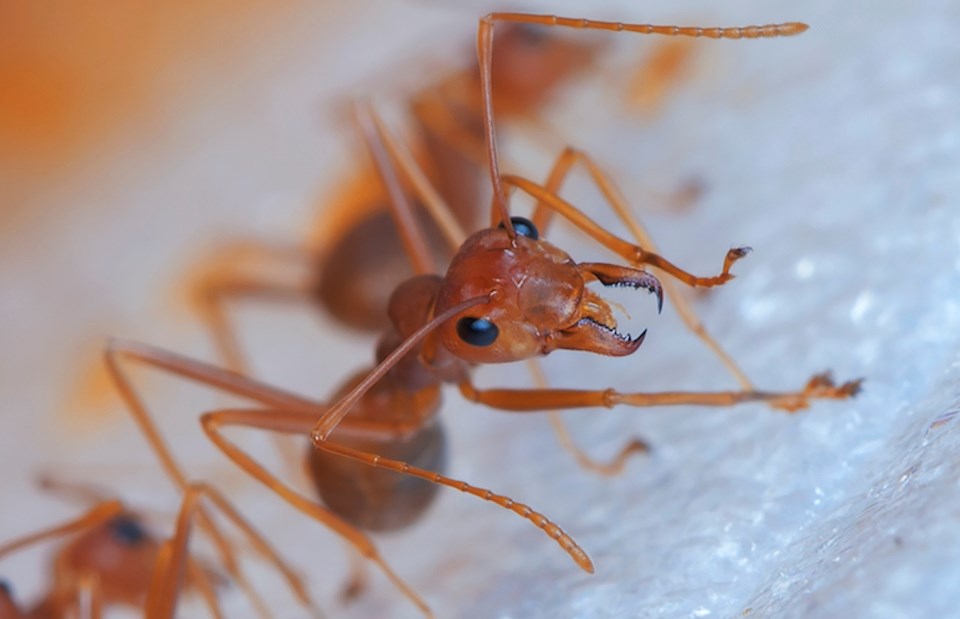They may be pint-sized but they pack a fiery sting that causes intense pain and a host of side effects.
The European fire ant is an invasive species in British Columbia that continues to wreak havoc across the Lower Mainland. They aren't easy to detect because they often build nests below the ground or along the soil, tree roots, shrubs, or inside rotting logs; a single property typically has upwards of 10 of them at a time, according to the Invasive Species Council of Metro Vancouver (ISCMV).
As its moniker implies, the invasive ants hail from overseas and pack a sting that feels like being burned by fire; they were first discovered in the eastern United States in the early 1900s before making their way across the continent to B.C.
While many ants are considered nuisance critters — meaning they are unsightly and bothersome but aren't dangerous — fire ants are an aggressive species. When one of them attacks, it will pinch down with its mandible and then swing around and sting repeatedly.
What can happen if I get stung by a fire ant?
A sting from a fire ant will typically start with the following symptoms:
- itchiness;
- redness; and,
- swelling at the site of the wound.
After the initial symptoms, a fluid-filled blister, called a pustule may develop within six to 24 hours. The pustules decrease within a week or two but may leave scabs that last for several days.
Most people have a mild reaction to a fire ant bite while others may have an allergic reaction to the venom that makes it difficult to breathe. They may also experience an "increased heart rate, swelling of the throat, nausea, vomiting, and shock," according to Orkin Canada.
Why would a fire ant come inside my home?
While they build their nests outdoors, fire ants may make their way inside when the mercury drops during the winter. Since the Metro Vancouver weather hasn't been as cold this year, you may see more activity outdoors.
To avoid attracting ants into your home, keep it tidy with garbage cans sealed. Clean up food spills as soon as they happen and keep food stored in sealed plastic or glass containers.
To keep them out of your yard, clear rotting debris and waste, particularly from moist areas. Ensure soil, plants, or debris that is being moved or disposed of is ant-free before getting rid of it.
How can I identify nests on my property and what will they eat?
Fire ants are reddish brown and about 1/8 to 1/4 of an inch in length. Unlike our native ant species, they have two waist segments rather than one. They also have two backward pointing spines and stinger (visible with a magnifying glass), according to the ISCMV.
Unfortunately, it is difficult to spot their nests since they build them below the ground. You may see individuals moving around your yard or in your home but they build their nests deep; some of them reach 1.5 metres below the soil.
They eat anything that serves as a source of protein including, "dead insects, fly larvae, grasshoppers, other ant species, caterpillars, and moths" but will also feast on much larger animals. They will feast on "newly hatched lizards, snakes, turtles, quails, chickens, and song birds" and have even been known to "inflict fatal wounds on calves and deer fawns," according to Orkin Canada.
Can I handle a fire ant problem on my own?
Mike Londry, owner of Westside Pest Control, told V.I.A. in a previous interview that some ant species, like pharaoh ants, go into "reproductive overdrive" when they are faced with a threat. When this happens, the queens break off from the original colony and migrate to different, safer locations — meaning that several nests will rapidly crop up.
Since home remedies don't work, homeowners should contact a professional pest control company.






